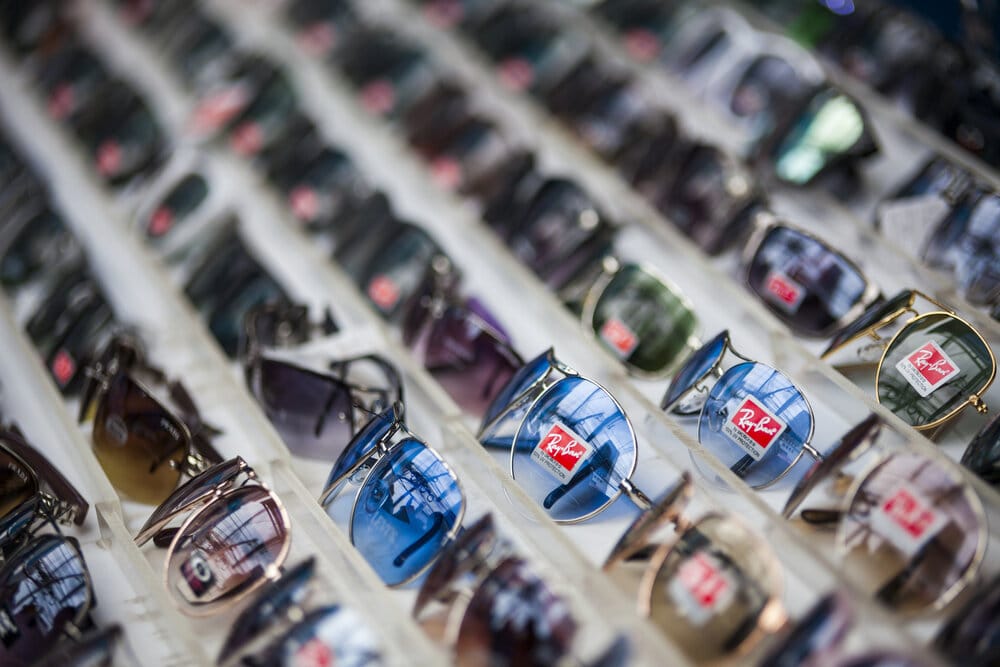With British summer on the horizon, sales of sunglasses are on the up, ready for UK gardens and balconies alike.
However, experts have warned of the dangers of fake sunglasses and what can they can do to your health.
A third of British adults (32%) have admitted to owning a fake designer product, a study has revealed, with over 100m counterfeit products present in the UK alone.
The research, by designer watch and sunglasses specialist, Tic Watches, has found men to be more likely than women to own a counterfeit imitation designer good (35% versus 30% of women), with 7% of men even admitting to owning 15 or more ‘fake’ items.
Here Danny Richmond, Managing Director of Tic Watches, discusses some of the potential dangers associated with of using or wearing fake products:
Fake Sunglasses:
Dodgy designer glasses can be harmful because they are often made from cheap materials and will rarely provide any protection for UV light. UV rays from the sun can cause long term eye damage or even permanent loss of vision.
Not only can fake sunglasses fail to prevent the UV, they can also mean more harm to your eyes. Because the sunglasses stop some of the visible light, your pupils will naturally dilate to absorb more light and with no UV filter, this can be harmful.
A University of Utah study in 2018 found this additional exposure to UV light to increase the risk of cataracts, macular degeneration which can lead to blindness, or development of ocular cancer.
Counterfeit Beauty Products:
Counterfeit beauty products can contain unknown and dangerous levels of toxins. Fake products will rarely be dermatologically tested and are not regulated.
Counterfeit perfumes seized in the UK by Trading Standards have been found to contain dangerously high levels of methanol, whilst other seized fake cosmetics have contained toxic chemicals such as mercury, arsenic and even human faeces. These chemicals are known to cause chemical burns or skin rashes.
21-year-old fashion blogger, Justina Sharp, knows all too well about the dangers, having received a fake perfume in the post, with harmful consequences.
She said: “I was sent a package by a company, which included a few goodies, including what appeared to be a small bottle of one of my favourite Dior perfumes – the one I always use.
“The minute I sprayed it on my skin, I broke out, and there was a strange smell on my skin. It turned into a horrific rash, which did not go down for days and was itchy and painful.
Upon closer inspection of the contents of the bottle, I noticed a very slight difference in colour, scent, to the original. It was a really brilliant knockoff, but my skin could definitely feel the difference.”





